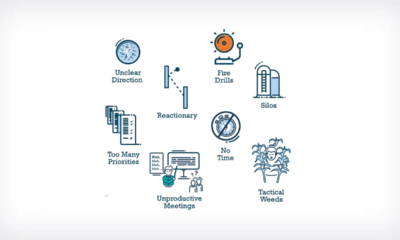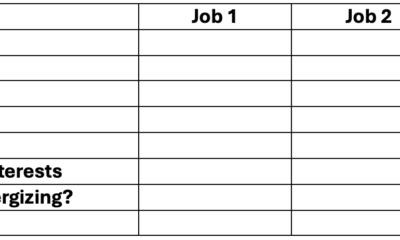Teamwork
Performance Punishment: What it Is & How to Stop It

Are they overwhelmed? Do they feel like they have too much on their plate? Make adjustments as needed to ensure that work is distributed evenly and fairly among all team members.
Communicate Openly and Transparently
Another important tip is to communicate openly and transparently with your team. Let them know why certain decisions are being made and how their hard work is being recognized. Transparency can help alleviate feelings of being punished for performance and can build trust within the team.
Be open to feedback from employees as well. If they feel like they are being punished for their performance, listen to their concerns and work together to find a solution. Communication is key in avoiding performance punishment in the workplace.
Reward and Recognize High Performers
Instead of giving high performers more work as a reward, consider other ways to recognize and reward their hard work. This could include bonuses, promotions, extra time off, or even just a simple thank you. Showing appreciation for their efforts can go a long way in boosting morale and motivation.
Make sure that rewards and recognition are tied to actual performance and results. High performers should feel valued and appreciated for their contributions, not burdened with more work.
Provide Growth Opportunities
One way to reward high performers without punishing them with more work is to provide growth opportunities. This could include training and development programs, mentoring opportunities, or the chance to work on special projects. Giving high performers the opportunity to grow and develop can show that their hard work is valued and can help prevent burnout.
Encourage employees to set goals and work towards them. Provide them with the resources and support they need to succeed. By investing in their growth and development, you can show that you value their contributions and want to help them succeed.
Monitor Workloads and Employee Satisfaction
Finally, it’s important to regularly monitor workloads and employee satisfaction to ensure that no one is being punished for their performance. Keep an eye on how work is being distributed, how employees are feeling about their workload, and any signs of burnout or stress.
Check in with employees regularly to see how they are doing and if they need any support. Make adjustments as needed to ensure that workloads are manageable and that high performers are not feeling overwhelmed or undervalued.
By following these tips and strategies, you can avoid punishing high-performing employees for their hard work. Instead, you can create a positive and supportive work environment where all employees feel valued and appreciated for their contributions. Employee feedback is crucial in understanding their workload balance. This can be done through one-on-one meetings, group discussions, or anonymous surveys. By checking in with employees, managers can gauge how they feel about their workload and make necessary adjustments.
Providing growth opportunities is another effective way to prevent performance punishment. High performers typically seek opportunities to learn, grow, and take on more responsibilities. However, it is important to ensure that additional tasks are viewed as opportunities for skill development, leadership experience, and career advancement rather than just more work. Programs like professional development initiatives and StrengthsFinder can help high performers feel rewarded for their efforts.
Transparent communication is key to avoiding performance punishment. Employees, especially high performers, should be involved in workload decisions and given the freedom to decline tasks. Openly discussing the reasons behind additional tasks and how employees will be rewarded can foster a people-centric workplace where opinions are valued. An open-door policy can further encourage honest conversations between employees and leadership.
Recognizing and rewarding employees’ efforts is essential for maintaining motivation and reducing turnover. Rewarding high-performing employees shows that their hard work is valued. Various rewards such as employee incentives, promotions, raises, shared experiences, and more can be used to recognize employees’ contributions. Understanding each employee’s preferences for rewards is crucial in ensuring their satisfaction and motivation.
In conclusion, managers can reward high-performing employees in various ways, with team bonding programs being a particularly effective option. Events like Play It Forward and Virtual Mixology offer employees a break from work, demonstrate appreciation for their efforts, and help improve teamwork, creativity, and communication skills. By rewarding high performers and avoiding performance punishment, employers can boost motivation, reduce turnover, and create a positive work environment. TeamBonding offers a range of team building activities tailored to reward high performers, making it easy for employers to show appreciation and recognition for their employees’ hard work. Sorry, could you please provide more information or clarify the request?
-

 Professional Development1 month ago
Professional Development1 month agoDrawing up your strategy
-

 Personal Growth2 months ago
Personal Growth2 months agoSucceeding as a ‘parentpreneur’: Top tips
-

 Videos2 months ago
Videos2 months agoGreat Leaders INSPIRE Others To Do Great Things
-

 Productivity1 month ago
Productivity1 month agoHow to Increase Remote Work Productivity
-

 Productivity2 months ago
Productivity2 months agoTips for Boosting Work Productivity
-

 Productivity2 months ago
Productivity2 months ago5 Ways to Increase Your Personal Assistant’s Productivity
-

 Leadership1 month ago
Leadership1 month agoHow to Tackle Big Challenges
-
Leadership1 month ago
Cutting Through the Clutter of Internal Communications



























